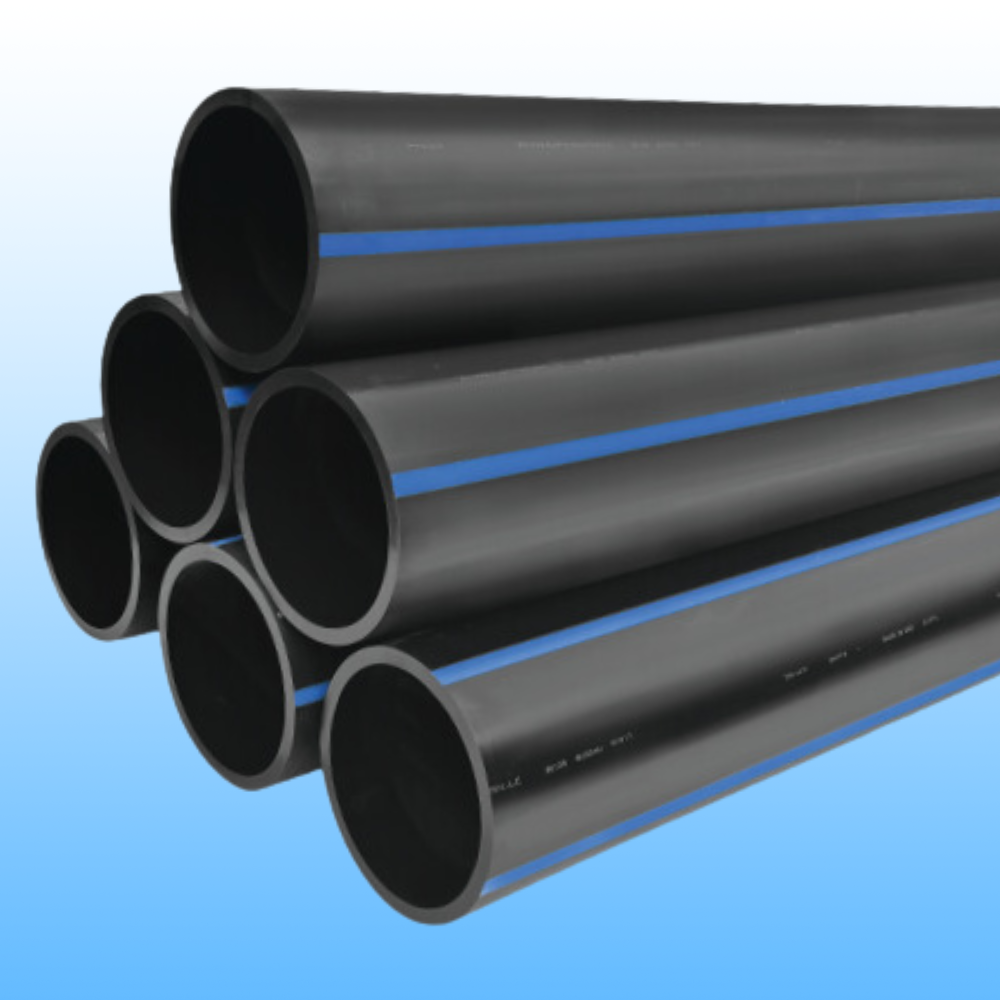The Role of Pipe Manufacturing Midland TX in Supporting Industry Growth
Wiki Article
Comprehending the Secret Benefits of HDPE Pipeline for Water and Wastewater Monitoring
Using HDPE pipe in water and wastewater monitoring provides various advantages that merit factor to consider. Its outstanding resilience and lengthy life expectancy make it a recommended selection for many tasks. Additionally, the product's resistance to corrosion and chemical damage improves its reliability in various settings. The benefits expand past just long life and resistance. Pipe Manufacturing Midland TX. Discovering its cost-effectiveness and ecological impact reveals a lot more engaging reasons for its prevalent adoption in modern frameworkPhenomenal Durability and Durability

HDPE pipeline sticks out for its remarkable toughness and long life, making it a favored selection in water monitoring systems. Constructed from high-density polyethylene, these pipelines can stand up to considerable pressure and stress, making certain dependable performance over time. Their robust nature allows them to endure severe ecological problems, consisting of temperature level changes and dirt activities, which can trigger various other products to fall short.
The lifespan of HDPE pipes often surpasses 50 years, supplying a cost-effective service for towns and industries alike. Additionally, the material's lightweight residential properties streamline installation, lowering labor prices and durations. This durability decreases the demand for frequent repair services or replacements, additionally enhancing its economic allure.
In water management applications, the reliability of HDPE pipes indicates fewer disruptions and boosted solution connection, making them integral to sustainable facilities growth. The mix of sturdiness and durability strengthens HDPE's role as a foundation in reliable water management remedies.

Resistance to Rust and Chemical Damage
While lots of products surrender to deterioration and chemical damage in time, HDPE pipes exhibit amazing resistance, making them perfect for various water administration applications. This durability comes from the molecular structure of high-density polyethylene, which is inherently non-reactive and does not wear away like steels or deteriorate from exposure to extreme chemicals. Because of this, HDPE is extremely reliable in settings with aggressive substances, such as wastewater systems that may have acids, bases, and organic solvents.
Furthermore, HDPE pipelines can withstand ecological variables such as soil level of acidity and saline problems, further improving their suitability for varied applications (American Plastics HDPE Pipe Manufacturing). Their ability to preserve structural integrity gradually lowers the danger of leakages and failings, which is critical in guaranteeing the safety and reliability of water distribution and wastewater monitoring systems. The resistance to corrosion and chemical damage noticeably contributes to the general performance and long life of HDPE piping remedies.
Cost-Effectiveness and Economic Advantages
When considering the economic implications of water monitoring systems, the cost-effectiveness of HDPE pipes ends up being evident. These pipelines provide reduced setup and upkeep prices compared to traditional materials like steel or concrete. Their lightweight nature simplifies transport and installment, causing lowered labor expenditures. Additionally, HDPE pipes display a long life-span, usually surpassing half a century, which translates to less substitutes and lasting cost savings.Additionally, the resistance of HDPE to rust and chemical damage minimizes the demand for costly fixings and substitutes. The pipes additionally sustain efficient water circulation, reducing energy expenses connected with pumping systems. By reducing leakages and water loss, HDPE pipes add to considerable economic benefits for communities and sectors alike. Generally, the initial investment in HDPE piping can yield significant financial returns over the lifespan of the water monitoring system, making it a sensible selection for sustainable infrastructure advancement.
Ecological Sustainability and Lowered Impact

Versatility and Adaptability in Installment
Due to their distinct homes, HDPE pipes supply exceptional versatility and flexibility in installment, making them ideal for a large range of applications. Their lightweight nature enables less complicated handling and transport, decreasing labor costs and setup time. HDPE pipelines can be curved and shaped to fit different surfaces and job demands, which is specifically useful in testing settings.In addition, their resistance to corrosion and chemical damages enables installment in varied setups without the demand for specialized protective finishes. The capacity to fuse joints creates a continual, leak-free system, enhancing the general stability and integrity of the installment. HDPE's versatility likewise accommodates ground motion, reducing the risk of damages in locations prone to shifting dirt. Overall, these characteristics make HDPE pipes not just flexible yet additionally a recommended choice for water and wastewater management systems.
Frequently Asked Inquiries
Just How Does HDPE Pipeline Contrast to PVC in Water Management Applications?
HDPE pipeline uses premium versatility, resistance to deterioration, and toughness contrasted to PVC. Its lighter weight assists in simpler installation, while its lengthy life expectancy decreases replacement prices, making HDPE a recommended selection in water administration applications.What Is the Life-span of HDPE Pipeline Under Typical Problems?
Under typical conditions, HDPE pipes can have a life-span varying from 50 to 100 years. Their sturdiness and resistance to deterioration add to their long-lasting performance in various applications, making them a trusted option for facilities.Are HDPE Piping Recyclable After Their Life Span?
Yes, HDPE pipelines are recyclable after their service life. Texas hdpe pipe manufacturer. They can be refined and repurposed into brand-new items, considerably reducing environmental influence and promoting sustainability within the industry, making them an eco-friendly selection for piping optionsWhat Is the Installation Refine for HDPE Water Lines?
The installment process for HDPE pipes entails website preparation, trenching, pipe blend or mechanical joining, backfilling, and pressure screening. Appropriate strategies assure a resilient and efficient system for carrying water and wastewater properly.Can HDPE Water Lines Be Utilized for Both Drinkable and Non-Potable Water Equipments?
Yes, HDPE pipelines can be used for both safe and clean and non-potable water systems. Their versatility, toughness, and resistance to deterioration make them ideal for numerous applications, making sure safe and efficient transportation of water in different contexts.Report this wiki page